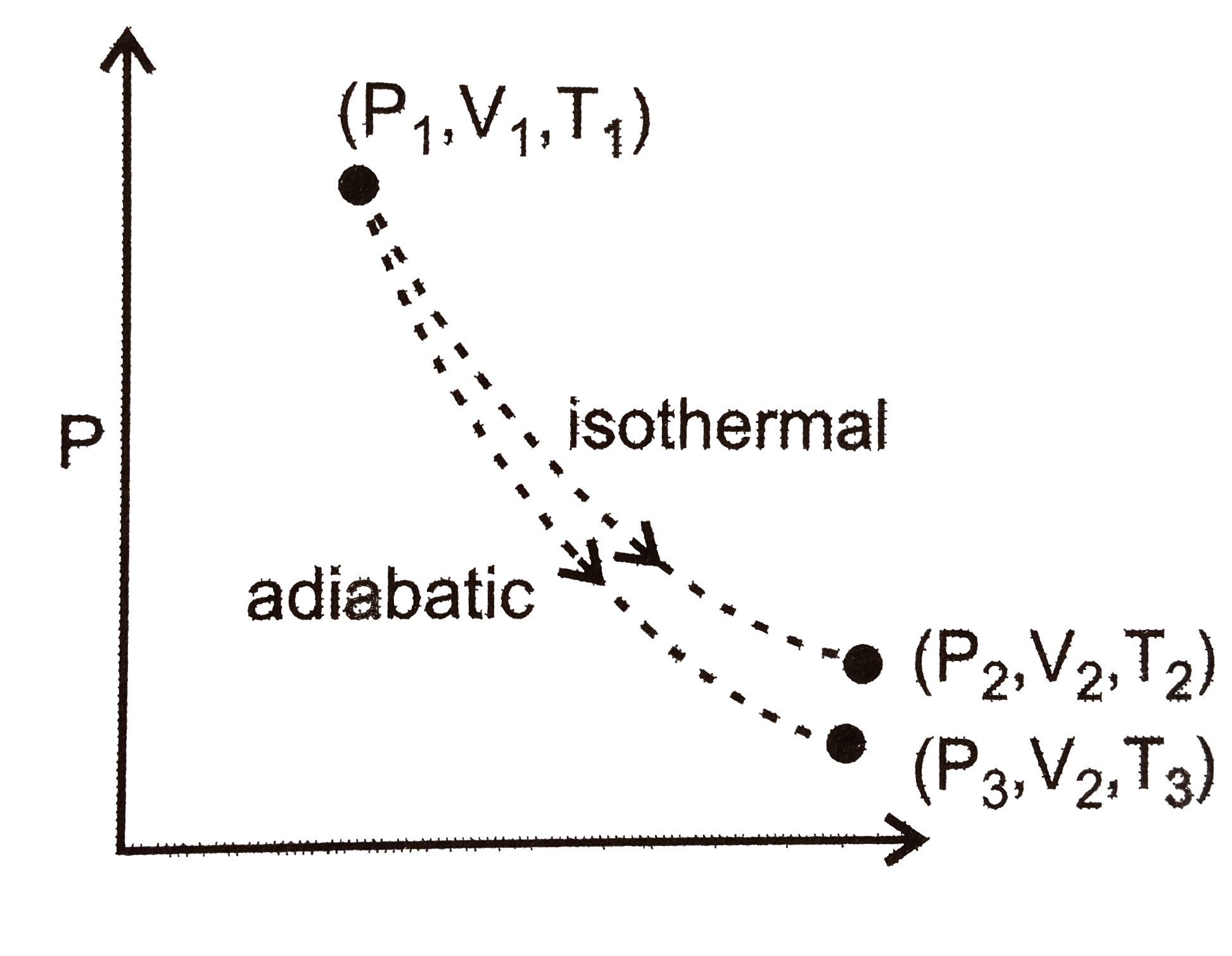For irreversible expansion of an ideal gas under isothermal condition, the correct option is:
ΔU=0,ΔStotal≠0
ΔU≠0,ΔStotal=0
ΔU=0,ΔStotal=0
ΔU≠0,ΔStotal≠0
To solve the problem regarding the irreversible expansion of an ideal gas under isothermal conditions, we can follow these steps:
1. Understand the Conditions:
- The problem states that we have an ideal gas undergoing irreversible expansion at constant temperature (isothermal condition).
2. Identify Key Concepts:
- For an ideal gas, the internal energy (U) is a function of temperature only. Therefore, if the temperature is constant, the change in internal energy (ΔU) is zero:
ΔU=0
3. Analyze the Entropy Change:
- In an irreversible process, the total change in entropy (ΔS_total) is greater than zero. For a reversible process, ΔS_total would be zero. Thus, for irreversible expansion:
ΔStotal>0
4. Evaluate the Options:
- Now, we need to evaluate the given options based on our findings:
- Option A: ΔU = 0, ΔS_total > 0 (This option is correct)
- Option B: (Not specified in the transcript, but likely incorrect based on context)
- Option C: ΔU = 0, ΔS = 0 (This is incorrect for an irreversible process)
- Option D: (Not specified in the transcript, but likely incorrect based on context)
5. Conclusion:
- The correct option is Option A: ΔU = 0 and ΔS_total > 0.
- The problem states that we have an ideal gas undergoing irreversible expansion at constant temperature (isothermal condition).
- For an ideal gas, the internal energy (U) is a function of temperature only. Therefore, if the temperature is constant, the change in internal energy (ΔU) is zero:
ΔU=0
- In an irreversible process, the total change in entropy (ΔS_total) is greater than zero. For a reversible process, ΔS_total would be zero. Thus, for irreversible expansion:
ΔStotal>0
- Now, we need to evaluate the given options based on our findings:
- Option A: ΔU = 0, ΔS_total > 0 (This option is correct)
- Option B: (Not specified in the transcript, but likely incorrect based on context)
- Option C: ΔU = 0, ΔS = 0 (This is incorrect for an irreversible process)
- Option D: (Not specified in the transcript, but likely incorrect based on context)
- The correct option is Option A: ΔU = 0 and ΔS_total > 0.
Topper's Solved these Questions
Similar Questions
Knowledge Check
For the isothermal expansion of an ideal gas
AE and H increasesBE increases but H decreasesCH increases but E decreasesDE and H are unalteredHeat given to an ideal gas under isothermal conditions is used
Aincreasin the tempBin doing external workCin increasing the internal energyDNone of theseFor the isothermal reversible expansion of an ideal gas
AΔH>0andΔU=0BΔH>0andΔU<0CΔH=0andΔU=0DΔH=0andΔU>0
In an isothermal expansion of an ideal gas
View SolutionIn an isothermal expansion of an ideal gas
View SolutionWhich of the following is correct for free expansion of ideal gas under isothermal condition :-
View SolutionIn reversible isothermal expansion of an ideal gas :
View SolutionFor an isothermal free expansion of an ideal gas,
View Solution

